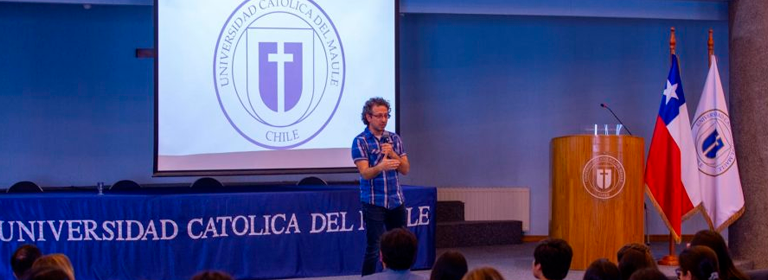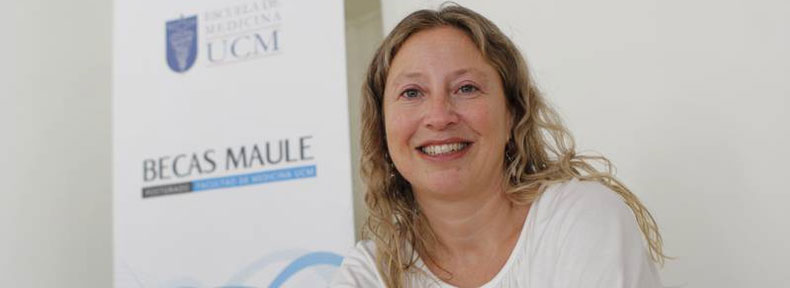Tristan Bekinschtein, one of the most prominent names in science linked to the intriguing experience of dreaming, gave a talk at the Universidad Católica del Maule.
 Do we dream every night? Can we dream in black and white? Are dreams always in the first person or do we eventually have the ability to see ourselves?
Do we dream every night? Can we dream in black and white? Are dreams always in the first person or do we eventually have the ability to see ourselves?
These and other questions were addressed by the director of the Laboratory of Consciousness and Cognition of the University of Cambridge, Tristan Bekinschtein, during a talk organized by the Doctorate in Psychology of the UCM and the Center for Research in Neuropsychology and Cognitive Neurosciences (CINPSI Neurocog), of the same institution.
Bekinschtein, one of the biggest names in his field and currently a senior professor on the prestigious UK campus, unraveled a sometimes-unfathomable human experience: dreams.
“The dream is a report that people make when they wake up, saying that something happened in their consciousness when they were supposedly unconscious. They are an important subject for psychology because they help to investigate the human mind, to know who we are and what is our place in the universe”, he argued.
The also doctor in Neurosciences and fellow of the Turing Institute maintained that beyond the interpretation of dream activity, it is «possible to capture dreams in a concrete and scientific way», as a team of Japanese researchers did when managed to partially decipher their content.
“Yukiyasu Kamitani studied dreamers with magnetic resonance imaging (MRI). There are criticisms about how this is done, but the truth is that with complicated mathematical methods, one can roughly read the content of dreams and know if the dream is more visual or auditory. With a better theoretical framework or techniques, one could decode what one is thinking or what is in consciousness when dreaming. Of course, from an ethical point of view, one would have to ask why,» he added.
In addition to the conference entitled «The Science of Dreams», Bekinschtein gave a talk about his experience in the Scientific Ethics Committee (CEC) of the University of Cambridge. The activity had the support of the CEC of the Universidad Católica del Maule.
“The events arise from the collaboration we have with the Laboratory of Consciousness and Cognition in the United Kingdom and from the general framework of a Fondecyt project that I direct. We programmed activities that could contribute to our academic work and to the general public, to make scientific linkage and dissemination”, said the director of the PhD in Psychology, Dr. Boris Lucero.













